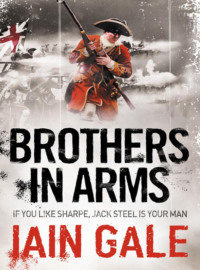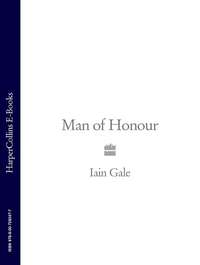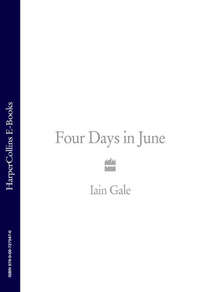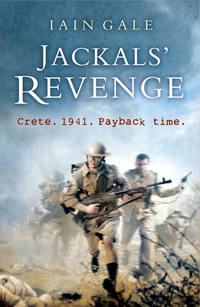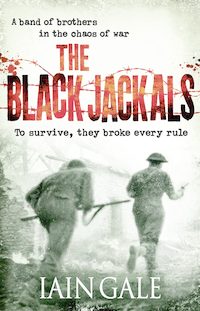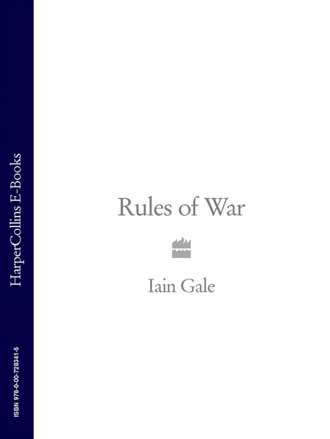
Полная версия
Rules of War
Slaughter stamped his foot which came down hard on the earth. ‘Ground seems fine and firm here to me.’
Steel was in no mood to be teased. ‘Shut up, Jacob and dress the damned line.’ He paused, regaining his better humour. ‘We must make ourselves pretty for the enemy gunners.’
Steel turned back to the front and stared at the army before him. In the centre he saw a puff of smoke and an instant later a single cannon shot broke the silence. He watched as the ball arced from the French lines towards the allied centre. Hansam reached into his pocket and brought out the gold half-hunter that he had taken from the body of a dead Bavarian at Blenheim. One of the few timepieces among the officers of the regiment, while it could hardly be called accurate, it was now his most prized possession. He flicked it open.
‘One o’clock, precisely. You would not suppose that your Frenchman would be quite so exact. Do you not think, Jack? Sloppy fellow as a rule, you’d say. And you’d be damned right.’ Hansam replaced the watch in his pocket.
Steel smiled and shook his head. ‘Never underestimate your enemy, Henry. The French may seem to care more about their food and their women than their fighting, but you should remember. In the thick of it and at their best, they’re just as good as you or I.’
Hardly had the echo of the single French cannon died away than a battery of six English twelve-pounders in the centre of the allied line opened up in reply, sending a hail of round-shot into the enemy infantry. It seemed to Steel that the instant that they fired the French guns too opened up and he watched mesmerized as the balls criss-crossed in a mid-air ballet. There was a curious beauty to it. But all too fleeting, for the reality soon came upon them. He reckoned the range at around a thousand yards. Long, but not quite long enough to spare them from harm.
To his right Slaughter growled a command: ‘Steady.’
Steel watched the black dots of the six cannonballs grow larger as they drew ever closer. As always their progress seemed to be slowed down, until in the last fifty yards he lost them as their true speed became evident.
Slaughter growled again: ‘Steady now.’
The French gunners, aware of the boggy ground, had fired high for impact rather than attempting to bounce their cannonballs before the enemy for greater effect. Two of the roundshot flew over the heads of the company but four found their mark, crashing into the line of redcoats and cutting bloody paths through the ranks. One of them took the head off a grenadier and carried it open-mouthed into the rear ranks, mitre cap and all, gouting blood, before smashing into the front two ranks of a regiment to their rear. Just behind Steel a young private, one of the new intake, threw up his meagre breakfast. He heard Slaughter calling to the leading men of the files: ‘Close up. Close the ranks. Someone get rid of that body. You, Jenkins. Move that bloody mess.’
This was how it always began. Standing in line, bearing the cannon fire until they were at last given the command to attack. It was the proving ground; what transformed a man into a soldier. And Steel knew that there were no better soldiers at standing under fire than the British and no better men among them than the Grenadiers. This was how you learned your trade.
Steel looked to his left along the line of the entire regiment. In the centre he could see the two colours of shining silk waving in the breeze, one the blue and white saltire of Scotland, the other the colonel’s own colour with the Farquharson arms in the centre of a red ground, crowned with the motto Nemo Me Impune Lacessit: ‘No one provokes me unpunished’. They would prove those words again today, he thought. Before the colours, mounted on a black charger and flanked by the adjutant, Colonel Sir James Farquharson raised his sword high above his head.
His colonel had grown up in the past two years, thought Steel. Blooded on the field of Blenheim he had earned the respect of his battalion, including that of Steel. The arrogant, vain colonel had given way to a new man, a man hardened to the reality of battle, alive to the responsibilities of raising a regiment. Farquharson was aware at last that this regiment he had paid for, clothed, equipped and trained was no plaything, but a finely honed tool of war, an instrument to be cherished; nurtured. Yes, thought Steel, you deserve to be our colonel now old man, and we deserve you. As he watched, Sir James brought down the sword, its point levelled towards the enemy. Even above the gunfire, Steel caught the words of command. ‘’Tallion will advance … Advance.’
As Sir James finished the six drummers positioned directly behind the Grenadier company along with those on the left flank began to beat the regiment into the attack.
‘Rat tat dum, rat dum tidi dum. Rat ta dum, rat tum tidi dum.’ The unmistakable tattoo of the ‘British Grenadiers’.
Behind him, Steel sensed the men growing restless, swelling with pride and adrenalin. Now they would move on his command.
‘Grenadiers, with me. Let’s be at them, boys.’
Slaughter, his sergeant’s halberd with its gleaming axe-head poised at the diagonal above the end of file man, offered his own words of gentle encouragement. ‘Come on you lazy buggers! Get on. They won’t bloody wait. This is what we’re here for,’ ain’t it? Let’s get into them.’
As one the battalion stepped off. The slow march to attack, at a pace calculated to be just sufficient to preserve order in the ranks, yet as fast as possible on a field of battle. Hardly fast enough, thought Steel, and he waited for the French cannon to adjust their range for maximum effectiveness. There was the dreadful lull as they did so and then seconds later the balls came screaming in again. The drums were hammering harder now, urging the men on, their rhythm insistent even under the bombardment. Looking briefly to his left he saw the entire line of Orkney’s brigade swinging across the plain and down the hill towards the stream. We must cross that, thought Steel. Just get through those marshes and we will be fine. Just have to make it that far. Was that so much to ask? Dear God, he prayed, to no being in particular. Whatever you might be, grant me just that one wish. Get us across the stream and let us be at the French. And do not let me die. But if I must be hit then do for heaven’s sake please let me die. Do not let me be crippled. Let me live, for God’s sake, let me live to carry the battle to my enemies. Your enemies for all I know. The Queen’s enemies. Marlborough’s enemies. Let me live to kill the French. As he repeated the gruesome litany in his head, Steel realized that they had made it to the foot of the slope and were now on the edge of the marsh, close to the stream.
He turned to Williams: ‘Tom, for God’s sake, keep the men close together. Don’t let them become bogged down. You must keep formation.’
Slaughter’s voice too growled out the familiar words above the din of battle: ‘Close up. Right shoulders forward. Close your ranks, you buggers.’
Steel looked back to the front, into the rain of shot and mouthed his useless prayer. Although in his heart he knew that if this miserable Whitsunday were to be the moment he would die, it was ordained already and there was nothing any words could change about that. But he knew that he could fight and that if the fates let him reach the French lines he would do his damnedest to make sure that this day would surely not be his last.
TWO
There was a trick in battle to keep your body engaged in the matter in hand, while your mind became detached from the grim possibilities of every passing minute. It was a ploy that Steel knew well, and had used many times. But this morning, for some inexplicable reason, it had as yet eluded him. He was sweating hard now. His thick coat felt ever heavier about him and the gun slung over his back seemed to drag him down and slow his pace. While he was relieved that their own guns were laying down a heavy bombardment, there had been no respite from the French cannon fire and with almost every step that they took towards the enemy it seemed to Steel that another redcoated figure tumbled from their ranks in a ragged heap. Ahead of him and to the left, he could see, through the thick white smoke, the tall frame of George Hamilton, Earl of Orkney, conspicuous in the plate armour which covered the upper half of his body, advancing on foot at the head of the brigade. Here, thought Steel, was a soldier to reckon with. A man towards whose station any officer would aspire. Not only was Orkney a sound tactician, he was brave. And for Steel the latter counted just as much in battle as any technical or military skills. They had moved with surprising ease at first over the boggy ground and Steel wondered why he had doubted Marlborough’s judgement in choosing this terrain. Certainly their pace had slowed, and the stream had at one point seemed to be impassable. But they had come through that and managed to cut their way through the vicious hedge of chevaux de frise, a barrier of bayonets stuck into treetrunks, which the French defenders had laid across the path of their assault.
Now they were trampling on bramble thickets as they bridged the valley of the Petite Gheete, the stream which flowed directly in front of the village of Autre-Eglise and as they advanced French and Walloon sharpshooters took their toll on the redcoated ranks before dropping back towards the enemy lines. Most of them, he reckoned, were Walloons – French-speaking Netherlanders, and their loyalty and steadfastness he knew to rank as nothing compared to any French regulars, unquestioningly loyal to the Sun King. Even as he looked, an entire company of Walloon infantry turned and streamed back towards the French lines.
As they ran a cheer went up from the British line. One of the Grenadiers, Dan Cussiter, shouted after them: ‘Go on. Bugger off back to Paris before we kick your arses.’
The men, desperate in their terror to laugh at anything, cheered his bravado and Steel heard Slaughter’s booming voice. ‘That’s enough, there. You’ll be in Paris yourselves as soon as likely. But not if you don’t dress your ranks. There’ll be time for cheering soon enough, my lads.’
It was vital to preserve discipline now, lest the men, fired by the sight of the retreating infantry, should break ranks and give chase only to find themselves faced by what Steel knew to lie head up the slight hill: the full might of the French battle lines. As the Grenadiers began to find themselves on firm ground, Steel, gradually regaining his composure, shook his limbs and tried to settle his nerves. And as he did so he heard a command from the left: the unmistakable tones of Major Charles Frampton, the adjutant: ‘’Tallion halt. Form your ranks. Prepare to attack.’
The command was taken up by the other field officers and as one the men came to a stop. They were still a good hundred yards out from the French but Steel knew that this was only a temporary halt.
He looked back and found Slaughter. ‘We advance on the command, Sarn’t!’
A roundshot came crashing past his head and smashed into the ranks behind, disembowelling one of the Grenadiers, Donaldson, a bluff, pleasant lad from Edinburgh, and taking the leg off another, Ned Tite. As the man lay writhing on the ground, his screams unsettling his comrades, Steel motioned to Slaughter to have him hauled away. They could not stand here long, he thought, would not endure much of this pasting. As if in answer to his concern another command came from the centre of the line.
‘’Tallion will prepare to advance. Charge your bayonets.’ The steel-tipped muskets which till now had been carried either at the high port or snugly in the shoulder, were brought down until they were level with the ground.
‘’Tallion – Advance!’
Again the drums struck up, this time a less noisome rattle. More of a tap, but a sound which when recognized, Steel knew, would bring a chill to the hearts of any enemy of Queen Anne. Grimly, the battalion moved up the hill and still the shot crashed down among them like a scythe reaping the corn. As they came up against the first houses of the little village of Autre-Eglise, it became obvious that the French had not been idle. Every street, every alleyway had been fortified with anything that had come to hand. Domestic furniture mainly, taken from the abandoned houses; prized possessions pressed into more practical service. But though hastily erected, Steel could see that the barricades had been made with experienced hands. Chairs and tables had been lashed together and stuck through with swords and bayonets – anything which would make their passage more hazardous.
Behind the fortifications stood the French and as the Grenadiers broke like a wave upon the wooden wall, the white-coated ranks let go with a devastating volley. But it was not enough to stop the red tide. Steel, seeing an opportunity, placed his foot on a table leg and leapt on top of a barricade. Below him a dark-skinned French infantryman looked up and attempted to stick him with his bayonet, but Steel was too quick and, parrying aside the weapon with his sword, brought its razor-sharp blade humming down into the man’s head, cleaving in half his black tricorne and with it the head within.
Exultant, Steel turned back momentarily towards the redcoats: ‘With me, Grenadiers. We’re in, lads. Death to the French.’
Followed by a half-dozen of his men, Steel threw himself over the wall and landed in a knot of white-coated soldiers. Such was their surprise that two of them dropped their muskets and ran back into the village. Of the others three were engaged by Steel’s men. Matt Taylor, a corporal and the company apothecary, used the butt of his musket like a club and hammered it hard into a Frenchman’s jaw. Steel winced at the crack. He found himself face to face with the tallest of the group, a huge mustachioed hulk of a man, a sergeant who wielded his spontoon like a farmer’s scythe and stood grinning just beyond the reach of Steel’s blade. Steel began to fence with him, cutting at the wooden staff and carefully sidestepping the stabs and swings of the evil pointed head. Treating the man’s weapon as if it were a sword, Steel cut to the left and parried it away and then with one swift movement lunged in fencing-salle style and skewered the big Frenchman squarely through the heart. The man stopped in mid-swing, stared wildly at the tall British officer and then, blood spouting from his mouth, fell backwards, stone dead.
Retrieving his sword from the corpse, Steel looked around. To his left more Grenadiers had succeeded in storming the village and were steadily pushing back the French and Walloon lines. He turned to his men: ‘The village is ours. Well done, lads.’ He looked to Slaughter: ‘Stand the men easy for a moment, Sarn’t; and post a guard. They’ll be back. We can be sure of that.’
Slaughter threw him a grin. ‘That was a fine fight, sir. Did you see ’em run?’
‘They ran all right. But we must have suffered in the assault. What’s our strength?’
‘Hard to say, sir. I know that a score of the lads went down on the hill and I dare say we may have lost half as much again in the fight.’
‘Yes. I thought as much.’
Still, he thought, thirty per cent casualties was what you might expect in a frontal attack and of them perhaps a third again would have been fatal. Ten good men dead then from his company and the day still young. Who, he wondered, had gone down? Was Williams hit? Or Hansam? Steel wiped the sweat from his forehead with his sleeve and looked about. His fears were quelled as from a neighbouring street the young ensign approached him. There was a cut on his right arm, his sleeve was drenched in blood and his face was quite white.
‘Tom. Are you hit?’
‘It’s nothing, sir. A scratch. French officer. I sent him off, sir. Pity. Damned fine swordsman.’
He winced as the pain in his arm cut in and managed a weak smile which told Steel that his wound, though serious, was not life-threatening.
‘I’m sending you to the rear. Best get that wound dressed before an infection sets in. Don’t want you to lose that arm, eh?’
Williams nodded and began to walk towards the lines.
‘He’ll do well, sir, that one. General, likely as not.’
‘If he manages to stay alive long enough, Jacob.’
From their left a tall figure approached – a senior officer. There was no mistaking the chiselled features of Lord Orkney. There was blood on his breeches and he had lost his sash. Otherwise, thought Steel, the youthful, forty-year-old general appeared miraculously unhurt.
‘Sarn’t, stand the men to attention. Officer approaching.’
‘Officer approaching. Stand to there.’
The Grenadiers straightened up and shuffled into three lines.
Orkney nodded to Steel. ‘You did well, Captain.’
‘Thank you, My Lord. But it was my men’s doing. The Grenadiers, sir.’
Orkney peered into Steel’s face. ‘Captain Steel is it not? The hero of Blenheim? Well, whoever claims the glory, it was as well done today as then. We have the village and I do not intend to give it up lightly. I have left your colonel in the centre of the position. Take your Grenadiers and join with those of the First Guards and General Fergusson’s regiment. Place yourselves on the side of the village closest to the French lines. Have your men construct defences. When they come on again, as they are sure to do, we’ll give them a taste of their own style, eh?’
‘Indeed, My Lord. You may rely upon us.’
Orkney was about to compliment Steel further when both men noticed five horsemen approaching from the allied lines. All were dressed in the elaborate uniform of the general staff and all appeared to be aides. It was as unlikely a sight as either of them had ever seen on any battlefield.
‘What d’you make of this, Captain Steel? A group of young gentlemen about town and dressed for the court? By God! Do I see red heels? What the devil shall we make of it?’
‘I do not know, My Lord. But I hazard that we are about to discover.’
The horsemen reined in before Orkney and the two leading riders dismounted. Steel recognized one of them as Benjamin Harley, an aide-de-camp to Marlborough himself. The young man made an exaggeratedly low bow to Orkney and began to speak. His accent was disarmingly soft and quite out of character with the battle raging around them.
‘My Lord. You are to disengage the enemy forthwith and retire two hundred yards.’
Orkney’s bushy eyebrows arched high above widening eyes and his face took on the hue of his coat. For an instant he was speechless. Then, as the aide waited in silence, he found his voice. ‘Disengage? Retire? Are you quite mad, sir? We have the village. This ground is ours. And, God please you, so too will be the day. I shall not disengage, sir. No, sir. I shall not retire.’ He spat the words in contempt. ‘On whose authority have you this order?’
The aide smiled, smugly. ‘It comes direct on the Lord Marlborough’s authority My Lord. It is his express wish that you should disengage the enemy with all speed and return to your starting line.’
Orkney stared at him in disbelief. For an instant Steel wondered whether the general was about to strike the young aide. And in truth he too felt rising indignation. This was too much to take. The duke he trusted implicitly, would follow to the ends of the earth. But to take this order from a young aide, without proper explanation for what seemed utter folly? Orkney took a pace towards the aide.
Steel saw that the boy’s hand had fallen to his sword hilt. This was getting dangerous. Now was not the time for such an argument. He intervened: ‘Sir – if the order has come from the duke himself, d’you not think that it might be prudent to obey? No matter how galling.’
Orkney, his eyes ablaze with rage, turned on him: ‘Captain Steel, I do not need your advice. I … and you, Steel, have left good men lying dead and dying back there. Men who died to take this place. Will you betray them now? We do not retreat. How can you agree with this madness? We are the victors, dammit. We have taken our objective. We have this ground. I shall not surrender it, not even for My Lord Marlborough.’
‘Indeed I too will never betray any of my men, sir, dead or alive. But it is an order, My Lord.’
Orkney regained his composure and, turned again to the white-faced ensign. ‘What is its purpose then? According to the rules of engagement the duty of a commander is to win battles, not to yield at a whim whatever ground he gains. For what possible reason could My Lord Marlborough desire me to retreat?’
Steel noticed that the other aides had now dismounted. One of them, slightly older than Harley, moved forward to speak. ‘Excuse me. Lieutenant the Honourable Greville Bennett, My Lord. It is not a retreat, Lord Orkney. Merely a tactical withdrawal.’
Orkney smashed his fist into the palm of his left hand: ‘Tactical withdrawal?’ He spat the words. ‘Marlborough sends me five of his liverish boys to tell me this. To tell me to retreat. For it is a retreat, dammit, man. No less. Why, I should …’
Again Harley’s hand darted nervously to his sidearm. Steel was about to stand between them when from the mouth of a sidestreet two further horsemen appeared. One was unmistakable as William Cadogan, the Duke of Marlborough’s right-hand man and quartermaster-general. At his side rode another officer, slightly more portly than Cadogan and older. Steel recognized him at once; Colonel James Hawkins, attached to Marlborough’s staff and one of the duke’s oldest friends, had been instrumental in Steel’s advancement to date. He was as good a mentor as he had ever had, but one whom he had not seen these past few weeks.
Hawkins and Cadogan rode up to Orkney and both men dismounted. Cadogan greeted the seething general with a smile. ‘What ho, George. You look as if you may have gone beyond yourself for once. Hold up. Have you not had the duke’s instructions? You are to retire and regroup, My Lord.’
Orkney seemed to stagger. He shook his head. ‘Do not tell me, William, that what this … boy has said is truly the case. That I am indeed ordered to abandon this place. It is my victory, Cadogan. We have the ground. Look for yourself.’
‘I am afraid, George that it is quite so. You see, fact is, you are simply too good for us, and for the French. Fact is, your attack was never more than a diversion intended to draw away the marshal’s reserves from his centre.’
Orkney’s face became an even deeper shade of pink: ‘Diversion? My attack a diversion? I’ll give His Grace diversion, by God. Tell that to those men lying dead upon that plain and at the barricades. Tell them why they died, by God.’
Cadogan shook his head. He nodded and made to grasp Orkney’s shoulder, but the general recoiled. ‘I know, George, I know. But fact is the duke did not think it prudent to inform you, or any of his commanders …’
Orkney laughed: ‘Not prudent? God’s blood, William! When is it prudent then to attack at all?’
A French battery on the high ground behind the village, observing the group of officers standing in the square, had ranged them and now shot began to fall perilously close, crashing into the cobbles and sending up splinters of stone.
Cadogan spoke again, in a more official tone: ‘Lord Orkney, the clear truth of the matter is, you have no cavalry in support of you. Look beyond the village. His Grace has commanded all the horse to move to the centre there to engage the enemy and to rout him. And that will happen. Look for yourself. You are isolated – stay here and you will without doubt be outflanked. You must retire, my friend, and you must do so at once. I am truly sorry.’
Orkney rubbed at his wig with his hands and then at his rheumy eyes. Finally, staring at the aide he nodded. ‘Very well. I shall do as you ask. But only as you come direct from His Grace and at the personal request of Lord Cadogan here. Inform the duke that I intend to ride to him forthwith and if I find you to be at fault then I shall not hesitate to make you pay, so help me.’
As Cadogan smiled and clapped the general on the back, Hawkins, who had remained silent, walked up to Steel, smiling. ‘They’re old friends, Jack. I grant you it goes against everything we should do. But there is sense in it, brilliance even. No doubt they will settle it amicably over a glass of wine, once we have beaten Marshal Villeroi.’


